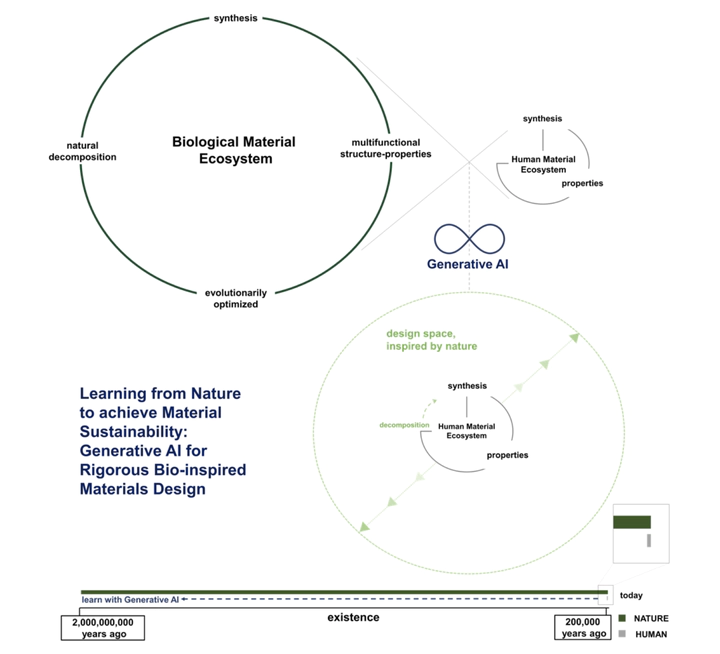De novo Design of Polymer Electrolytes with High Conductivity using GPT-based and Diffusion-based Generative Models

Abstract
Nature has severely outpaced humans in developing multifunctional, hierarchical materials that access impressive material properties, all the while being fully degradable and part of native ecosystems. But how can we effectively model the intricate time and length scales in biological systems to translate design principles to meet engineering demands? We postulate that generative artificial intelligence (AI) can play a crucial role in solving this interdisciplinary challenge, translating insights across disparate knowledge domains and forming the basis for a new sustainable materials economy. Techniques like generative adversarial networks, transformer neural networks, and diffusion denoising modeling have been used to solve complex bio-inspired design challenges. Emerging tools such as multimodal large language models provide robust foundations with reasoning abilities that can be multiplied if connected into multi-agent systems with access to first principles (e.g., Density Functional Theory, molecular dynamics, coarse-grained simulations) or physical experiments (e.g., autonomous manufacturing, universal material/mechanical testing). Through this approach, generative AI can not only address complex forward and inverse tasks but also develop ontological knowledge that offers interpretability using graph theory, facilitating the translation of knowledge across diverse scientific domains. This approach empowers critical thinking essential for addressing contemporary global environmental challenges. The emerging next generation of AI systems surpasses limitations imposed by original training data, actively exploring new understanding. Bio-inspired generative AI notably widens the design space, fostering natural scientific discovery while departing from cyclical human-centric design, pushing the frontier of biomateriomic research.